
I have previously lamented in African Birdlife (see the November/ December 2022 issue) how magazines make difficult things look easy: ‘10 easy steps to losing weight’, ‘How to save your marriage’, ‘Photographing birds underwater’. National Geographic certainly made the last one look easy. I tried to emulate Greg Lecoeur, its 2016 Nature Photographer of the Year, and failed. Now, with more experience under my belt, I was ready to capture what had eluded me the first time – a glorious photograph of a gannet, underwater, catching a fish. Remembering that a week hadn’t been long enough for my previous attempt to photograph gannets caught up in the annual sardine run, I paid for two weeks on the dive boat. I was going back to Hole in the Wall on the Wild Coast, and this year things were going to be different.
Apart from photographing gannets, one of my aims for this sardine run was to sit at the back of the boat where the pros usually hang out. But Andy Coetzee, who was in charge of the dive operation, had already allocated these seats to two cinematographers. I suppose there was nowhere else to put their enormous cameras, so I figured I’d just sit next to them with my Tupperware underwater rig and take notes.
The first day was glorious. Not only was the ocean like a lake, but I was able to share the experience with my son, who had come along for the first week. As we marvelled at the gannets skimming along just inches above the surface, I commented that this somehow felt like the calm before a storm. Of course, I jinxed it. That night it started to rain.
Diese Geschichte stammt aus der March/April 2024-Ausgabe von African Birdlife.
Starten Sie Ihre 7-tägige kostenlose Testversion von Magzter GOLD, um auf Tausende kuratierte Premium-Storys sowie über 8.000 Zeitschriften und Zeitungen zuzugreifen.
Bereits Abonnent ? Anmelden
Diese Geschichte stammt aus der March/April 2024-Ausgabe von African Birdlife.
Starten Sie Ihre 7-tägige kostenlose Testversion von Magzter GOLD, um auf Tausende kuratierte Premium-Storys sowie über 8.000 Zeitschriften und Zeitungen zuzugreifen.
Bereits Abonnent? Anmelden

EXPLORING NEW HORIZONS
Keith Barnes, co-author of the new Field Guide to Birds of Greater Southern Africa, chats about the long-neglected birding regions just north of the Kunene and Zambezi, getting back to watching birds and the vulture that changed his life.
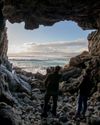
footloose IN FYNBOS
The Walker Bay Diversity Trail is a leisurely hike with a multitude of flowers, feathers and flavours along the way.
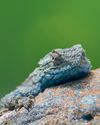
Living forwards
How photographing birds helps me face adversity
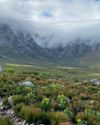
CAPE crusade
The Cape Bird Club/City of Cape Town Birding Big Year Challenge
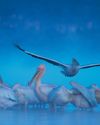
water & WINGS
WATER IS LIFE. As wildlife photographer Greg du Toit knows better than most.
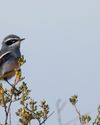
winter wanderer
as summer becomes a memory in the south, the skies are a little quieter as the migrants have returned to the warming north. But one bird endemic to the southern African region takes its own little winter journey.
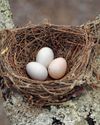
when perfect isn't enough
Egg signatures and forgeries in the cuckoo-drongo arms race

Southern SIGHTINGS
The late summer period naturally started quietening down after the midsummer excitement, but there were still some classy rarities on offer for birders all over the subregion. As always, none of the records included here have been adjudicated by any of the subregion's Rarities Committees.

flood impact on wetland birds
One of the features of a warming planet is increasingly erratic rainfall; years of drought followed by devastating floods. Fortunately, many waterbirds are pre-adapted to cope with such extremes, especially in southern Africa where they have evolved to exploit episodic rainfall events in semi-arid and arid regions. But how do waterbirds respond to floods in areas where rainfall - and access to water - is more predictable? Peter Ryan explores the consequences of recent floods on the birds of the Western Cape's Olifants River valley.
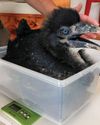
a star is born
It’s every producer’s dream to plan a wildlife television series and pick the right characters before filming.